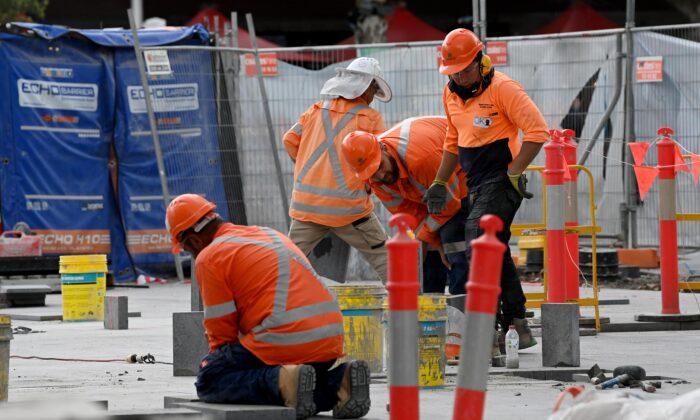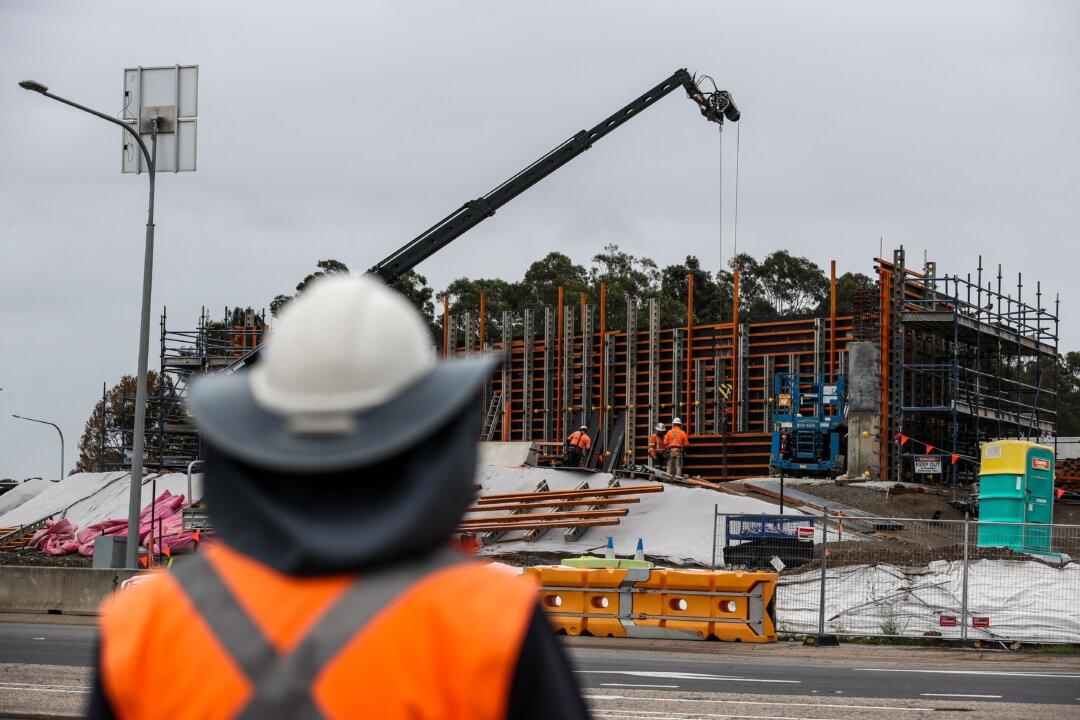Australian businesses from various sectors have come together to protest the Labor government’s enterprise bargaining reform via a national media campaign.
The legislation, which the Labor Party first proposed before the 2022 federal election, seeks to make employers pay labour-hire contractors the same amount they pay to their direct employees for the same job.
This means contractors, who obtain jobs via labour-hire agencies, would be able to get the same full rate of pay, including incentive-based payments and bonuses, monetary allowances, overtime rates and other benefits enjoyed by those directly employed by the host businesses if they are found to engage in the same working duties.
Business Community’s Protest
Business associations argued that the policy did not bring about fairness and justice, contradicting its name.“It means by law, you cannot earn better pay by working harder or longer if your colleague does not share your ambition or work ethic.”
The associations also said that the legislation would deprive workers of working flexibility and the opportunity to negotiate more pay for harder work.
Other potential consequences included job losses, reduced productivity, and lower wage growth.
“It affects all of the business, it affects service contractors, it affects labour hire, it affects individual organisations. There is no one across Australia that is untouched by this poor policy,” Minerals Council chief executive Tania Constable told reporters.
“This policy of same jobs, same pay would undermine that productivity that we’re seeing. We will see job losses. It’s unfair.”

Echoing the sentiment, Andrew McKellar, the CEO of the Australian Chamber of Commerce and Industry, said the laws would restrict labour-hiring firms’ capacity to operate.
“This is all about an agenda to try to restrict those legitimate businesses from conducting their operations and to deliver outcomes which are basically at the request of unions to try and make it easier for them to recruit members,” he said.
Government’s Response
Following the business community’s announcement, Treasurer Jim Chalmers refuted the idea that the same job, same pay legislation would hamper productivity.“It’s not unusual or uncommon for employer peak groups to express a view about industrial relations.
“There‘ll be areas where we’ve got similar views, and there’ll be some areas where we don’t. We’re realistic about that.”
In addition, the treasurer did not believe the labour-hire worker reform would cause businesses to stop rewarding the experience held by employees in the workplace.
“It’s about making sure that workers are eligible for the pay and conditions that the employers have agreed with their workforces,” Chalmers said.
“We don’t want to see it used as a sort of an ongoing way to undermine and undercut people’s pay and conditions that have been negotiated with employers.”

Industrial Relations and Employment Minister Tony Burke said some arguments put forward by the businesses groups were not true and that the government was trying to fix a loophole in enterprise bargaining.
Meanwhile, Shadow Minister for Industrial Relations Michaelia Cash said Labor’s policy went much further than fixing a loophole in labour-hire practices.
“Any businesses engaging service contractors will be captured. If it is about closing a loophole, it should be very, very narrowly defined.”
She also alleged that Labor’s proposal was about discouraging different forms of employment across the country.
Economists Weigh in on Labor’s Proposal
Gene Tunny, the director of the economic consulting firm Adept Economics, said while it was difficult to speculate whether the policy could result in business failures and job losses, it clearly would not help affected businesses.“It will certainly increase costs for those businesses engaging people via labour-hire firms to try to get around unfavourable workplace agreements influenced by unions,” he told The Epoch Times.
“Mining, construction and manufacturing would be the most affected sectors, I suspect, without looking at it too closely. Construction, which has been suffering from cost increases lately, would probably be worst affected, and it could hurt some firms rather badly.”
Meanwhile, Graham Young, the executive director of the Australian Institute for Progress, said the “same job, same pay” policy oversimplified the employer-employee relationship.
“In the union world, there is one price, and that’s it. Otherwise, it is an abuse of human rights.
“Unions too often rely on seniority rather than ability, with the ”last on, last off“ rule leading to ossification in production and shifts the economic burden onto younger workers, irrespective of their real worth to the enterprise.”





